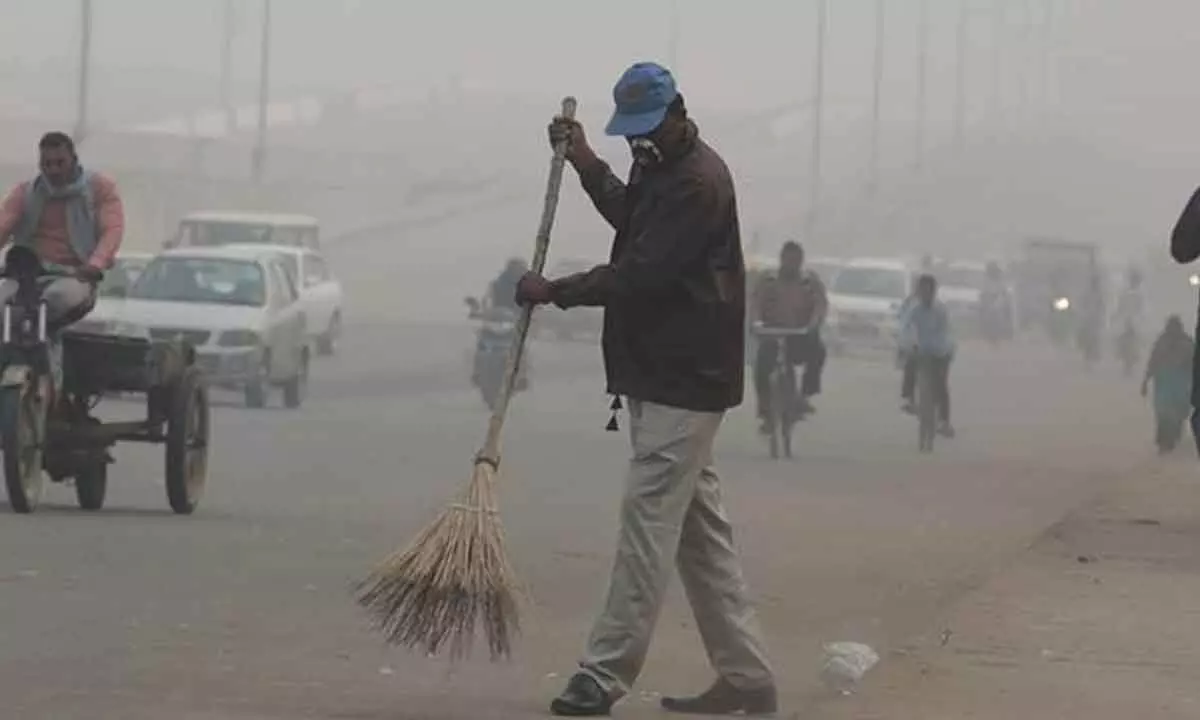97% sanitation workers exposed to air pollution: Study

Abnormal pulmonary function results were recorded in 75 per cent waste-pickers, 86 per cent sanitation workers and 86 per cent security guards
New Delhi: Nearly 97 per cent sanitation workers, 95 per cent waste-pickers, and 82 per cent security guards in the country are exposed to air pollution during their work, a study released on Friday claimed.
The study, conducted by Chintan environmental research and action group, is an assessment of the relationship between air pollution and incidence of respiratory illness for three essential occupational groups – waste-pickers, sanitation workers, and security guards.
The research further suggested that more than 60 per cent of sanitation workers, 50 per cent of waste-pickers and 30 percent of security guards “did not know about PPE kits that could reduce their exposure (to pollution).”
“Abnormal pulmonary function results were recorded in 75 per cent waste-pickers, 86 per cent sanitation workers and 86 per cent security guards.
In contrast, 45 per cent of participants of the control group had abnormal lung function,” the study said.
“17 per cent waste-pickers, 27 per cent sanitation workers and 10 per cent security guards were found to be suffering from severe lung illnesses,” it added. Based on the findings of the study, which was conducted in consultation with the three groups, and health and air pollution experts, the NGO has recommended provisions for Personal Protective Equipment (PPE) and training on the efficient use of PPE kits.
“Training on gargling after duty hours to effectively remove dust particles from nasal and throat cavities should be conducted.
Hand and face washing facilities near the place of work should be mandated and heated bottles should be provided during winters to reduce open burning,” the study said.
For pollution management, it further suggested that sanitary inspectors should be delegated power to report and fine waste burning and usage of mechanised sweepers on larger arterial roads.
To limit exposure to pollution, the study suggested, work shifts should be changed during hazardous AQI.
“All resting places should be engineered at levels above the tail-pipe level of SUVs and there should be annual health check-ups as well,” it added. Suggesting a few systematic shifts, the study said that composting must be mandated to prevent landfill fires and in-situ horticulture waste management systems should also be set up.
“Guidelines on occupational health protection must be issued by Swachh Bharat Mission. Drones and other imagery must be used to identify garbage burning and bioremediation strategies should be executed to prevent landfill fires,” the study suggested.













